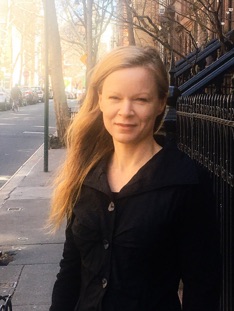PhD Seminar: Prof. Susanna Schellenberg

The PhD course this year will be taught by Prof. Susanna Schellenberg (Rutgers, https://susannaschellenberg.org/).
It will take place in presence from Tuesday May 21 to Thusday May 23, 10-12, at the Seminari de Filosofia, in the Faculty of Philosophy of the UB.
The annual PhD course is a mandatory training activity for students registered in the philosophy branch of CCiL or LOGOS PhD students. The course will be based on a new book Prof. Schellenberg is concluding: Subjective Perspectives.
ABSTRACT
We always have a perspective on our environment in the trivial sense that we occupy a position in the space-time manifold and in the more substantial sense of having a set of cognitive, emotional, perceptual, and behavioral tools with which we navigate the world. An individual’s perspective is the lens through which she processes, organizes, interprets, and responds to information and thereby navigates and interacts with her environment, situations, and others. It is a spatiotemporally located information processing mechanism. I call this the lens view of perspectives. I develop this view of perspectives while avoiding the pitfalls of relativism, solipsism, and idealism. Despite the fact that we can never entirely escape our perspective, we can access objective truths. Consider the fact that a camera can capture the very same scene in two distinct ways by using different lenses. Each photograph can, despite their differences, be a correct depiction of the landscape. Similarly, while we access the world via our particular perspective, we gain knowledge about the world, perceive mind-independent objects, and there is a fact of the matter as to whether our beliefs are true or false. I develop the implications of this realist view of perspectives for social and political issues, on the one hand, as well scientific research, on the other. Questions permeating the project are: How does your and my perspectives differ; and how are they the same? How does the perspective of us humans differ from that of AI or a less rational animal? And again, how are our perspectives the same as that of a robot or a rat.